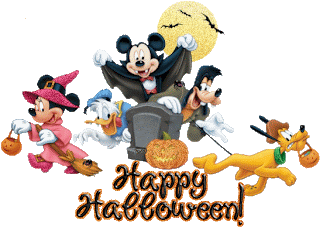Mostrando entradas con la etiqueta Inglés. Mostrar todas las entradas
Mostrando entradas con la etiqueta Inglés. Mostrar todas las entradas
jueves, 12 de septiembre de 2013
martes, 9 de julio de 2013
martes, 25 de junio de 2013
History of the Argentinian Flag
The flag of Argentina was designed by military leader Manuel Belgrano in an effort to differentiate between the Argentine armies and the Spanish, who had both used the colors yellow and red. The flag of Argentina was raised for the first time on February 27, 1812, in Rosario, Argentina, during the country's war for independence. This flag featured the light blue and white bands, but the sun was not added until 1818. The national flag of Argentina was officially adopted on July 20, 1816.
martes, 14 de mayo de 2013
lunes, 4 de marzo de 2013
domingo, 14 de octubre de 2012
domingo, 9 de septiembre de 2012
SPRING IS COMING...
 "I was here first," said the snowdrop: "look!"
"I was here first," said the snowdrop: "look!"
"Not before me!" sang the silver brook.
"Why," cried the grass, "I've been here a week!"
"So have I, dear," sighed a violet meek.
What does it matter who's first or last?
Sky, brooks, and flowers, and birdies that sing,
All help to make up the beautiful spring."
 "I was here first," said the snowdrop: "look!"
"I was here first," said the snowdrop: "look!""Not before me!" sang the silver brook.
"Why," cried the grass, "I've been here a week!"
"So have I, dear," sighed a violet meek.
"Well,"
piped a bluebird, "don't leave me out!
I saw the snow that lay round about."
"Yes," chirped a snowbird, "that may be true;
But I've seen it all the bleak winter through."
I saw the snow that lay round about."
"Yes," chirped a snowbird, "that may be true;
But I've seen it all the bleak winter through."
"I came
betimes," sang the southwind, "I!"
"After me, love!" spake the deep blue sky.
"Who is it cares?" chimed the crickets gay:
"Now you are here, let us hope you'll stay."
Whispered the sun, "Lo! the winter's past:"After me, love!" spake the deep blue sky.
"Who is it cares?" chimed the crickets gay:
"Now you are here, let us hope you'll stay."
What does it matter who's first or last?
Sky, brooks, and flowers, and birdies that sing,
All help to make up the beautiful spring."
domingo, 5 de agosto de 2012
The Olympic Games
The Olympic Games began over 2,700 years ago in Olympia, in southwest Greece. The Games were part of a religious festival. The Greek Olympics, thought to have begun in 776 BC, inspired the modern Olympic Games (begun in 1896) The Games were held in honour of Zeus, king of the gods, and were staged every four years at Olympia, a valley near a city called Elis. People from all over the Greek world came to watch and take part.
martes, 29 de mayo de 2012
miércoles, 11 de abril de 2012
martes, 6 de diciembre de 2011
jueves, 1 de diciembre de 2011
Richie Rich
We have just seen "Richie Rich" fully in English!!! We have also done some activities connected to the story.
sábado, 22 de octubre de 2011
HALLOWEEN
Halloween History & Origin
Halloween is the one of the oldest holidays still celebrated today. It's one of the most popular holidays, second only to Christmas. While millions of people celebrate Halloween without knowing its origins and myths, the history and facts of Halloween make the holiday more fascinating.
Some people view Halloween as a time for fun, putting on costumes, trick-or-treating, and having theme parties. Others view it as a time of superstitions, ghosts, goblins and evil spirits that should be avoided at all costs.
As the Christian debate goes on, celebrating Halloween is a preference that is not always viewed as participating in an evil holiday. Halloween is often celebrated with no reference to pagan rituals or the occult.
Halloween History
Halloween is on October 31st, the last day of the Celtic calendar. It was originally a pagan holiday, honoring the dead. Halloween was referred to as All Hallows Eve and dates back to over 2000 years ago.
All Hallows Eve is the evening before All Saints Day, which was created by Christians to convert pagans, and is celebrated on November 1st. The Catholic church honored saints on this designated day.
Origin of Halloween
While there are many versions of the origins and old customs of Halloween, some remain consistent by all accounts. Different cultures view Halloween somewhat differently but traditional Halloween practices remain the same.
Halloween culture can be traced back to the Druids, a Celtic culture in Ireland, Britain and Northern Europe. Roots lay in the feast of Samhain, which was annually on October 31st to honor the dead.
Samhain signifies "summers end" or November. Samhain was a harvest festival with huge sacred bonfires, marking the end of the Celtic year and beginning of a new one. Many of the practices involved in this celebration were fed on superstition.
The Celts believed the souls of the dead roamed the streets and villages at night. Since not all spirits were thought to be friendly, gifts and treats were left out to pacify the evil and ensure next years crops would be plentiful. This custom evolved into trick-or-treating.
viernes, 7 de octubre de 2011
martes, 23 de agosto de 2011
viernes, 1 de julio de 2011
domingo, 15 de mayo de 2011
domingo, 17 de abril de 2011
domingo, 25 de abril de 2010
Suscribirse a:
Entradas (Atom)
















